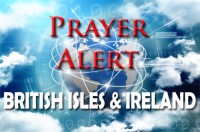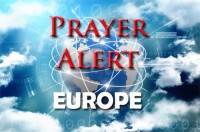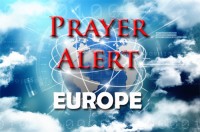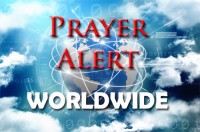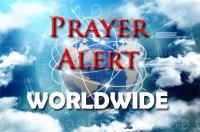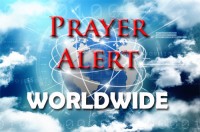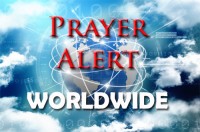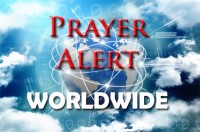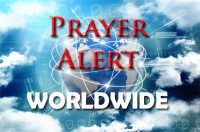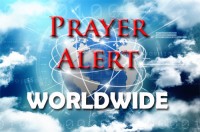Faith organisations to the fore in helping homeless
At least 500 churches, synagogues, and mosques across the UK have opened their doors to homeless people in the past year, a report by the charity Housing Justice says. Volunteers donated more than 490,000 hours to the 34 church and community night-shelter projects that contributed data to the report - an average of 14,850 hours per shelter. The report was produced to draw attention to the plight of homeless people in the UK and the work of night shelters. It says that these shelters stayed open for an average of 114 days during the year, with a total of 1,920 guests (84 per cent of them male). The findings were published as the Prime Minister announced extra funds for helping the homeless. Speaking last month, Mrs May said, ‘In the run-up to Christmas, images of soup kitchens and hostels remind us of the vital lifeline provided by charities and local services to those facing a night on the streets. But today I have witnessed a different kind of support, one which seeks to stop people ending up on the street altogether by providing assistance to address their most immediate needs, and - crucially - giving them the skills and opportunities to help them build a more secure future for themselves.’
France: Election frontrunner a Christian
On Wednesday François Fillon, the frontrunner for the French presidential election due to take place in April, bucked tradition by declaring his Christian faith. He was picked as the presidential candidate for the French centre-right Union for a Popular Movement (UMP) party in November. His declaration of faith has caused a stir in a country where the government, and elected officials, are legally not allowed to endorse a certain religion or the lack of religion, a policy known as laicité - secularity. He told the TF1 television channel, ‘I am a Gaullist and furthermore a Christian. It means that I will never take a decision that would run counter to the respect of human dignity, the respect of the individual, and solidarity.’ He was urged by politicians to keep his faith out of his campaigning. They accused him of using religion to win votes. 60% of people in France identify as Christian.
Europe: cold snap affects the poor, old and helpless
It snowed in southern Albania for the first time in 32 years. The homeless are dying. Most rural areas are cut off by snow. There are temporary power and water outages and army helicopters are distributing aid in mountain areas. Shipping along Europe’s second-longest waterway is suspended as freezing conditions grip the continent, causing hardship among migrants, homeless and elderly. On Tuesday the death toll was 61, one-third in Poland. Icy conditions in Serbia claimed two lives. Refugees are at risk in Greece. Three people died in the past three days in Macedonia from temperatures of -20C. A 68-year-old homeless man froze to death in the capital, Skopje, while a 60-year-old man died in front of his home in Strumica. Authorities urged homeless people to go to shelters and local schools, which are taking them in during the cold spell. Elsewhere roofs are collapsing and schools are closed.
Afghanistan: many victims of bombings
Up to thirty people were killed and 80 wounded in twin bombings near the parliament in the capital, Kabul. Blasts at the governor's guesthouse in Kandahar killed at least 11 and injured 14, including the United Arab Emirates (UAE) ambassador. Earlier, in Helmand province a Taliban suicide bomber targeted a guesthouse used by an intelligence official, killing at least seven people. Reports speak of a suicide bomber striking first outside the entrance to parliament, followed by a car bomb. President Ashraf Ghani vowed that all those behind the ‘criminal attacks’ would be caught. ‘The Taliban shamelessly claim credit for the attack on civilians and they're proud of it’, he said in a statement. Afghan sources said a district head of the National Directorate of Security - Afghanistan's main intelligence agency - was among the dead. The UAE foreign ministry called it a ‘heinous terrorist attack’.
Two problems for Trump
The director of the US office of government ethics has criticised Donald Trump's plan to hand control of his business empire to his sons before his inauguration next week. Walter Shaub said that the plan does not match the standards of US presidents over the last forty years, and would not remove conflicts of interest. ‘Every president in modern times has taken the strong medicine of divestiture’, he said, referring to a process whereby Mr Trump would sell off his corporate assets and put the profits into a blind trust run by an independent trustee. The Trump Organisation is an umbrella company for his hundreds of investments in real estate, brands and other businesses. Another problem for the president-elect is the huge and very public rift between himself and the US intelligence community, over its recently-published conclusion that the Kremlin sought to support Trump’s election. Neither side is likely to back off and both may come out damaged. See:
Egypt: four bombing suspects arrested
Four men have been arrested in connection with the suicide attack at the St Peter and St Paul church in Cairo last month, which killed 28 people and injured over 40. Eleven people are still in the hospital. Egypt's Interior Ministry says one of the four men arrested has links to the Muslim Brotherhood, though the group has denied any involvement. Hours after the attack, the terror group IS said one of its soldiers, named Abu Abdallah-al-Masri, was responsible for carrying out the attack, the worst on Egypt's Coptic Christian community since 2011. Despite this claim by IS, Egypt appears eager to pin the blame on the outlawed Brotherhood. Damage to the church was repaired just before 7 January, the day Coptic Christians celebrate Christmas. The renovations were undertaken by Egypt's army under orders of president Abdel-Fattah El-Sisi, who has promised to rebuild all churches that have been destroyed or damaged since 2013.
Pakistan: Christian food ‘unclean’
Many Christian children in Pakistan face discrimination, abuse, hostility and even violence at government schools. A class of schoolgirls in Pakistan were taking an exam in Home Economics. The examiner was tasting the food they had cooked. But when she got to the Christian girls she refused to touch what they had cooked, saying it would make her unclean. She tipped the food in the bin, and the girls failed the exam. Four Christian girls at a Punjabi high school were forced to bring their own drinking glasses and water bottles to school after Muslim students complained they were unclean. There are also many who cannot go to school at all because their parents cannot afford the fees. Instead, children are forced to work as menial labourers, often in high-risk jobs.
The Church in China: persecution and influence
The Church is the largest social force in China not controlled by the Communist Party. As a result, there are increasing efforts to restrict the way Christians operate. A considerable number of Christians are still imprisoned. Violence is at a very high level and is increasing: also, churches have been closed, and landlords pressurised to stop renting premises to Christians. The story for Christians in China varies hugely depending on the region. There has been a significant change for the better for Han Chinese, but Christians from minority ethnic groups face a great amount of persecution. ‘There was a woman in my church who was kidnapped by her family when they found out she converted. They took her back to her home village, broke her legs so she could not escape, and then tried to force her to be a Muslim again.’ These are the words of a Christian leader from the Hui people group. Originally from a Muslim family, as most Hui are, she came to Christ 14 years ago. In spite of the enormous risk, many Hui are becoming Christians. ‘It is amazing how the gospel message touches the hearts of the Hui; many are giving up everything to follow Christ.’
Israel: reactions to truck attack
A man from the predominantly Bedouin southern city of Rahat has been arrested for posting a video on his Facebook page that called for people to carry out car-ramming attacks, Israeli police said in a statement on Wednesday. The video featured footage from last Sunday’s terror attack, in which an East Jerusalem man drove his truck into a group of Israeli soldiers, then backed up and ran over them again, killing four and injuring dozens. In the background of the video a voice, speaking in Arabic, encouraged people to carry out similar attacks. Police said the suspect, a thirty-year-old Rahat resident, was first detained on Tuesday and would remain in jail at least until Sunday. ‘While protecting free speech, we cannot allow incitement and threats on Facebook’, the statement said. Earlier in the week, police arrested four residents of the Old City in Jerusalem for spray-painting graffiti praising Fadi al-Qunbar, the driver in Sunday’s attack.
Nigeria: army arrests 963 BH suspects
On Wednesday the Nigerian army said it had arrested 963 persons suspected to be Boko Haram terrorists during an operation between 4 and 9 January. Commander Lucky Irabor said, ‘On 3 January four women and thirteen children were apprehended by vigilantes and were later handed over to our troops. Preliminary investigation revealed that the women were wives of Boko Haram terrorists who fled from Sambisa forest as a result of our operations. All suspects are now in our custody undergoing investigation. On 5 January, following a tip-off, troops arrested four Boko Haram suspects at Shuwari village. Also on 5 January, 119 Nigerian Internal Displacement Persons (IDPs) were handed over to Nigerian troops at Banki by the Cameroonian forces. On 9 January, a surrendered Boko Haram member was identified as a male sympathiser and spy in Monguno area.’

